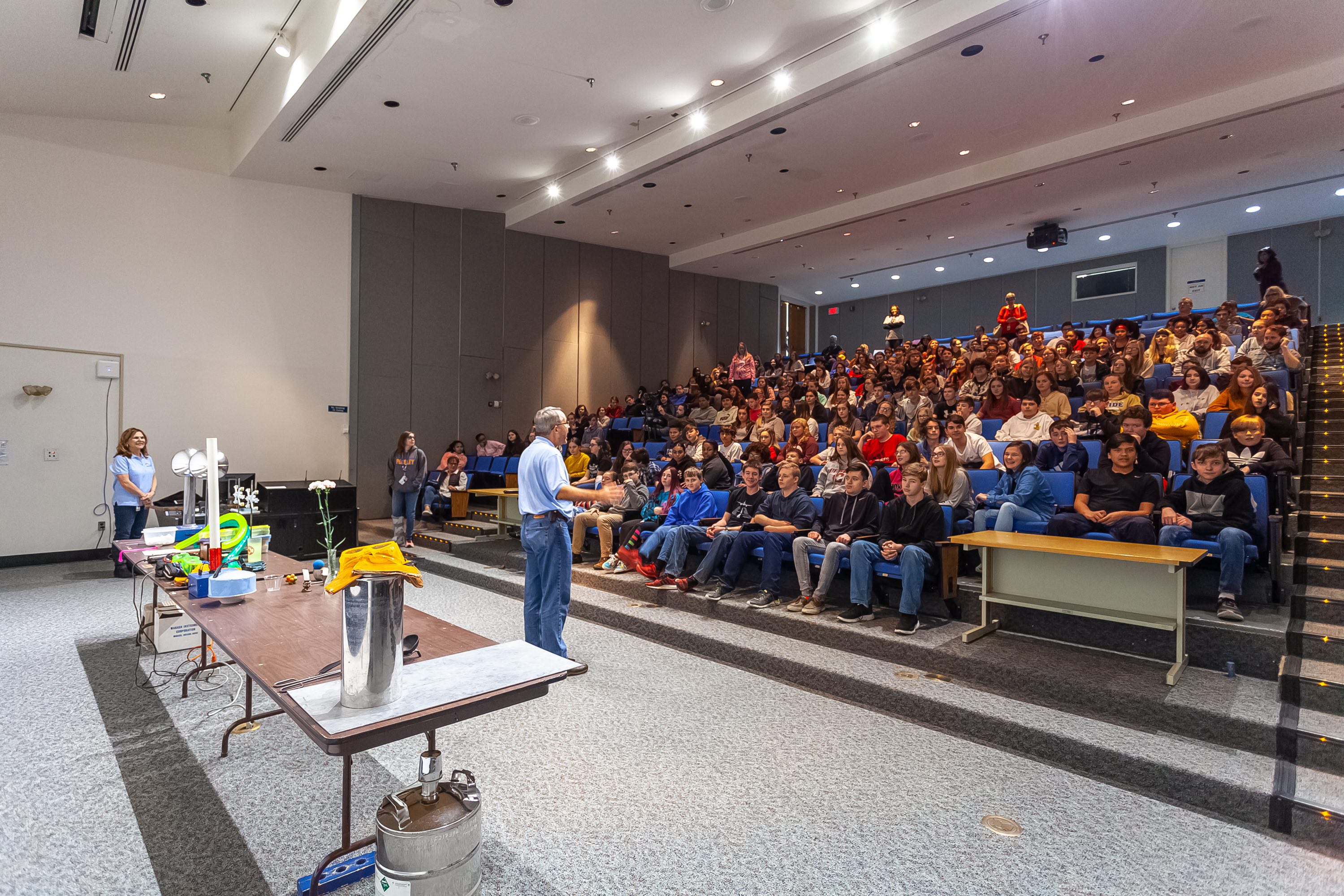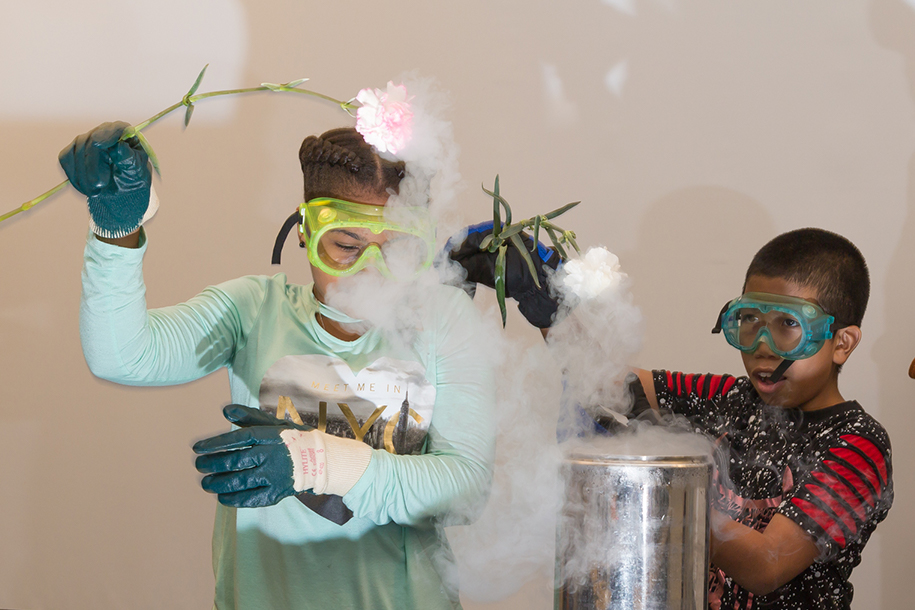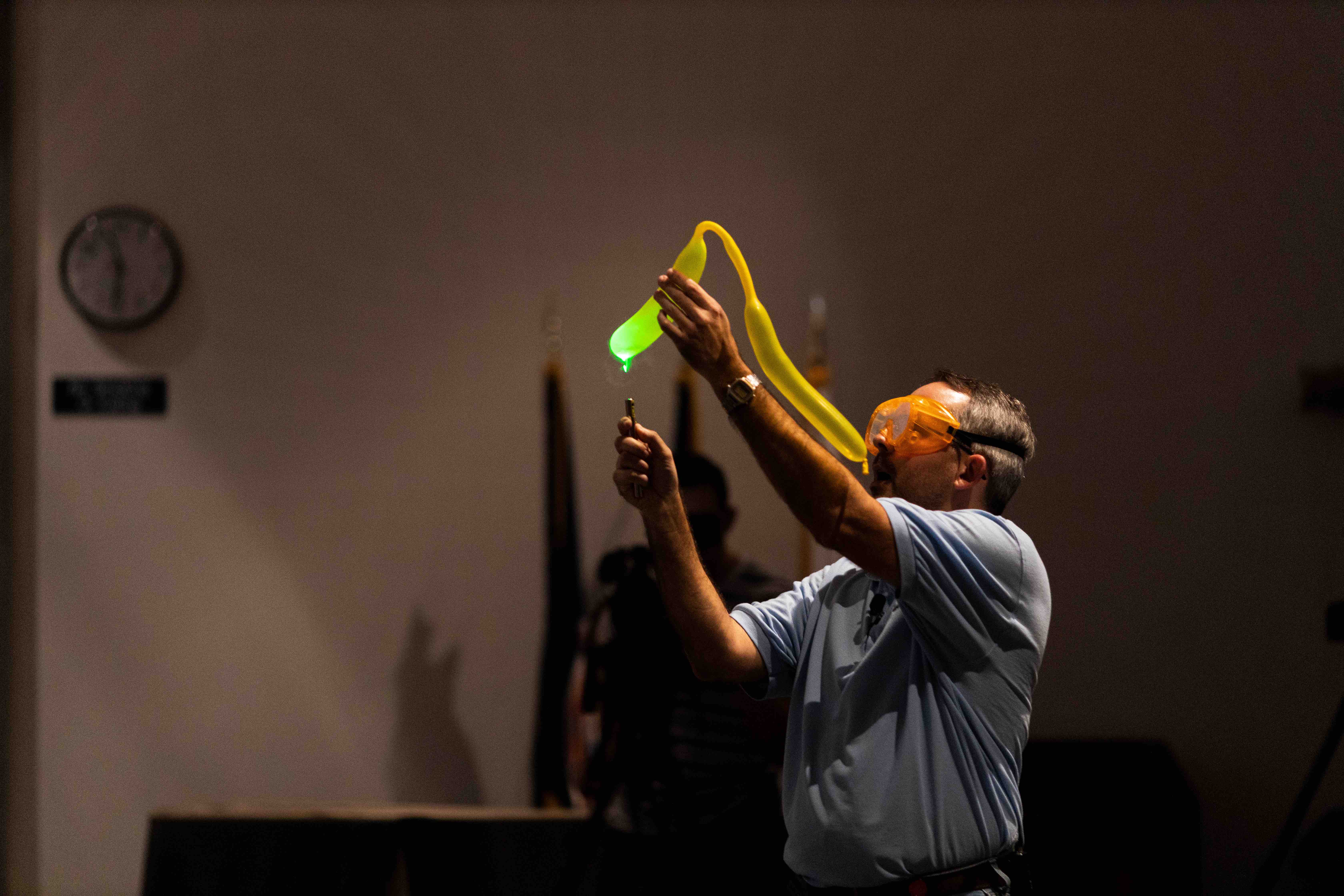Stop summer science brain drain: Register now to reserve your seat for an exploration of the physical sciences
NEWPORT NEWS, VA – The U.S. Department of Energy's Thomas Jefferson National Accelerator Facility is proud to offer the community the opportunity to attend the summer edition of its extraordinary Physics Fest program. Physics Fests present and demonstrate concepts in the physical sciences, including the science of the very hot and cold, light and matter. Offered on two dates this summer, July 11 and August 2, the program requires advance registration but is free to attend.
Physics Fest is a part-experiment, part-demonstration program that features entertaining and educational displays of cryogenics and plasmas. It is aimed at students in grades 5-8, but younger and older students will also find the program entertaining and educational. The program also introduces the audience to the types of experiments conducted at the lab and some of the technologies used to carry them out.
“These will be our first Physics Fest programs since the pandemic began in 2020. I’m excited and a little bit nervous about jumping back into doing these live presentations,” said Steve Gagnon, a Science Education team member and longtime host of the lab’s popular Frostbite Theater series on YouTube. “But we’re game to give it a go and see what happens. After all, it’s only a bit of fun physics.”
The program’s array of demonstrations is designed to help kids better understand scientific principles and research methods. Audience members will learn about the phases of matter, starting with demonstrations using liquid nitrogen at a frigid -321 degrees Fahrenheit, and ending with plasmas. For a sneak peek at what to expect, check out the “Live Demonstrations at Jefferson Lab” playlist on the lab’s YouTube channel.
“Our demonstrations of the properties of liquid nitrogen are always one of the most popular parts of the program. We’ll also be looking for volunteers from the audience to help carry out the demonstrations, so we hope students come ready to participate,” Gagnon added.
The Physics Fest will take place 10:30–11:45 a.m. on July 11 and August 2. Seating is limited. Reservations are required, and reservations must be confirmed. To register for the program, visit the website.
This free program is offered to families, groups and classes. Individual students and groups must be accompanied for the duration of the event by teachers, parents or authorized adult escorts. Physics Fests take place in the CEBAF Center auditorium, located at 12000 Jefferson Ave.
Those planning to attend may also download the Physics Fest Classroom Activity Pack, which contains general information about Jefferson Lab, the anatomy of the atom, a vocabulary list with related games and puzzles, and data sheets and activities that may be used before, during and after the program. The materials are written at the 6th-grade reading level.
For security purposes, everyone over 16 is asked to carry a photo I.D. Security guards may inspect vehicles, book bags, backpacks, etc. A map and directions utility is also available on the reservations page.
Further Reading
Physics Fest
Physics Fest Downloadable Activities
Jefferson Lab Science Education
Contact: Kandice Carter, Jefferson Lab Communications Office, 757-269-7263, kcarter@jlab.org




